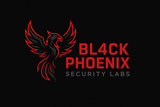Unlocking Community Potential: The Flair Filtering Hack

In the vast, dynamic landscape of online communities, effective content management and user experience are paramount. While major platforms like Reddit offer extensive tools, they often present limitations that challenge community leaders. A recent update from the moderator of a prominent subreddit, u/Abrownn, offers a fascinating glimpse into this ongoing struggle and the ingenious solutions that arise from it.
The Challenge of Information Overload
The original post, a seemingly minor administrative announcement, highlighted a common friction point: the demand for more sophisticated content filtering. Specifically, a user inquired about the ability to filter out (or "exclude") posts based on their assigned "link flair." While flair itself is a powerful categorization tool, the absence of a native "exclude" filter forces users to manually sift through irrelevant content, hindering efficient information discovery.
For any online community, particularly those focused on specialized topics like technology or cybersecurity, the signal-to-noise ratio is critical. Users need to quickly find what's relevant to them, whether it's the latest vulnerability disclosure, a new programming language feature, or a discussion on ethical hacking. Without robust filtering options, valuable insights can be lost in a flood of general updates or off-topic posts.
The Ingenuity of the "Hacky Workaround"
Faced with this platform limitation, the moderator didn't simply shrug. Instead, they devised what they candidly termed a "hacky workaround." While the specifics of this solution weren't fully detailed in the snippet, the very phrase speaks volumes about the adaptive spirit prevalent in tech communities. It signifies an understanding of the platform's underlying mechanisms and a creative approach to bending them to serve user needs.
This situation mirrors many challenges in the broader tech and cybersecurity domains. Often, developers and security professionals encounter systems that lack ideal functionalities. The ability to identify these gaps, understand system behaviors, and craft non-standard but effective solutions is a hallmark of true innovation. It's about thinking outside the conventional framework and leveraging available tools in unexpected ways to achieve a desired outcome.
Broader Implications for Digital Platforms and UX
This localized Reddit update carries insights applicable to a much wider audience:
- User-Centric Design Imperatives: It underscores that platform development, even for established giants, is an iterative process. User feedback, even a single query about a filtering option, can expose critical gaps in user experience.
- The Role of Community Management: Effective moderation extends beyond enforcing rules; it involves actively enhancing the usability and value of the community. Moderators often act as de facto UX designers, finding ways to optimize user interaction within existing constraints.
- Adaptive Problem-Solving: The "hacky workaround" exemplifies the necessity of ingenuity when native solutions are unavailable. This mindset, crucial in cybersecurity for mitigating novel threats or exploiting unforeseen vulnerabilities (for defensive purposes), involves deep system understanding and creative application of knowledge.
- Information Architecture: How content is organized and made discoverable directly impacts its utility. The need for advanced filtering highlights the importance of well-thought-out taxonomies (like flair) and flexible retrieval mechanisms.
Conclusion: Small Fixes, Big Lessons
While a subreddit's flair filter might seem like a minor detail, it illuminates fundamental principles of digital platform evolution and community sustainability. The continuous push by users for better tools, met by the creative solutions of moderators, drives incremental improvements across the digital landscape. It reminds us that even in highly structured environments, there's always room for innovation and for adapting systems to better serve their human operators and users. Bl4ckPhoenix Security Labs observes that these small, localized "hacks" are not just administrative fixes, but micro-demonstrations of the inventive spirit that underpins the entire tech world.




